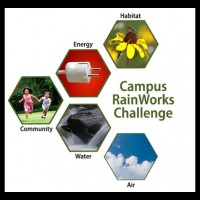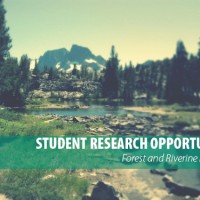The UW geoduck research project is looking for additional interns for summer quarter. We think this could be a great opportunity for undergrads so please let me know if you have students interested in 1-3 credits of internship/Experiential Learning. In particular, we’d like to find students eager to gain field experience. To do so, they’d have to be available for the daylong field trips on some of the dates indicated below (3 trips = 30 hours = 1 credit). We might also be amenable to a mix of field and lab work (e.g., 2 field trips + 10 hours of lab work = 1 credit). I’ve included more details about the project below, as well as our trip dates. Interested students can contact “P. Sean McDonald” <psean@uw.edu> and Kate McPeek <mcpeek@uw.edu> for more information.
Thanks,
Sean McDonald
**
BACKGROUND:
A variety of studies have suggested that shellfish aquaculture operations can cause significant change in resident ecological communities at or near project sites, and development of intertidal aquaculture operations for Pacific geoduck clams, Panopea generosa, provides an opportunity to investigate the phenomenon. As part of a NOAA Sea Grant-funded project, we are using experimental and comparative analytical techniques to determine how geoduck aquaculture affects communities of plants and animals on Puget Sound beaches. Our approach compares punctuated disturbances associated with culture methods to naturally occurring background levels of disturbance and will provide the scientific foundation for policy decisions that must balance the needs and concerns of multiple stakeholders.
Project website http://www.wsg.washington.edu/research/geoduck/research/vanblaricom_overview.html
LEARNING OBJECTIVES:
– Learn about lab/field safety and chemical hygiene.
– Gain experience collecting and processing samples, including coarse sorting and invertebrate identification and enumeration.
– Gain experience using microscopes and other lab equipment.
– Develop knowledge of procedures for collecting data in the field, including site selection, sample acquisition, and preservation.
– Gain familiarity with techniques for the culture/harvest of geoduck clams and the environmental, social, and political debate over intertidal aquaculture.
FIELDWORK DETAILS:
Each trip will depart from the loading dock on the west side of the Fisheries Sciences Building (FSH, aka SAFS; across from Recycled cycles). Please try to be there about 10 minutes before the departure time so we can load all of the gear. We will most likely head straight to our research sites without delay so plan on packing a travel mug if you need java to keep yourself warm and motivated. Once we get to the sites we’ll give everyone an overview of the activity and divide up into groups to complete tasks. Our trips typically take 8-10 hours.
ITEMS YOU SHOULD BRING: I would recommend preparing for variable weather. Dress in layers and expect to get muddy/dirty. Gloves and a warm hat are often a good idea, particularly in the mornings. Sunscreen and a broad-rimmed hat are important once the sun comes out! If you have rubber boots, please bring them. You should also bring rain gear (rain pants or overalls might help you stay a bit cleaner too). If you’re lacking boots/gear, please let me know and I’ll find something for you. You should pack a lunch., snack, and water too. Please let me know if you have any questions.
TRIP DESCRIPTIONS:
invertebrate sampling trips (Infauna/Epifauna – We’ll be collecting/preserving benthic core samples and epibenthic pumps, and photographing quadrats, in 4-6 person teams (each team is led by a graduate student or senior researcher). See dates below.
fish sampling and tagging trips (Marke-recapture) – We’ll be beach seining fish and tagging them as part of a recapture experiment. We’ll also preserve tissue samples for diet and chemical analysis. Teams will be up to 11 people (each team is led by a graduate student and senior researcher). See dates below.
Date UW Departure Low tide Site Activities
Sunday, June 3 5:30am -3.4’ @ 11:30am Manke Infauna/Epifauna
Monday, June 4 6:15am -3.9’ @ 12:16pm Rolf Infauna/Epifauna
Tuesday, June 5 7:00am -4.0’ @ 1:03pm Foss Infauna/Epifauna
Thursday, June 14 3:30am 0.8’ @ 9:36am Foss Mark-recapture
Friday, June 15 4:15am 0.1’ @ 10:13am Rolf Mark-recapture
Saturday, June 16 4:45am -0.5’ @ 10:47am Manke Mark-recapture
Sunday, July 15 4:15am -0.2’ @ 10:12am Manke Mark-recapture
Monday, July 16 4:45am -0.7’ @ 10:51am Foss Mark-recapture
Tuesday, July 17 5:30am -1.2’ @ 11:28am Rolf Mark-recapture
Wednesday, Aug 1 5:45am -2.3’ @ 11:47am Manke Infauna/Epifauna
Thursday, Aug 2 6:30am -2.0’ @ 12:32pm Rolf Infauna/Epifauna
Friday, Aug 3 7:15am -1.3’ @ 1:15pm Foss Infauna/Epifauna
Tuesday, Aug 14 4:15am -0.1’ @ 10:20am Foss Mark-recapture
Wednesday, Aug 15 5:00am -0.4’ @ 11:01am Rolf Mark-recapture
Thursday, Aug 16 5:30am -0.6’ @ 11:40am Manke Mark-recapture
Wednesday, Sept 12 4:45am 1.0’ @ 9:42am Foss Recapture
Thursday, Sept 13 5:30am 0.7’ @ 10:28am Rolf Recapture
Friday, Sept 14 6:00am 0.8’ @ 11:10am Manke Recapture



